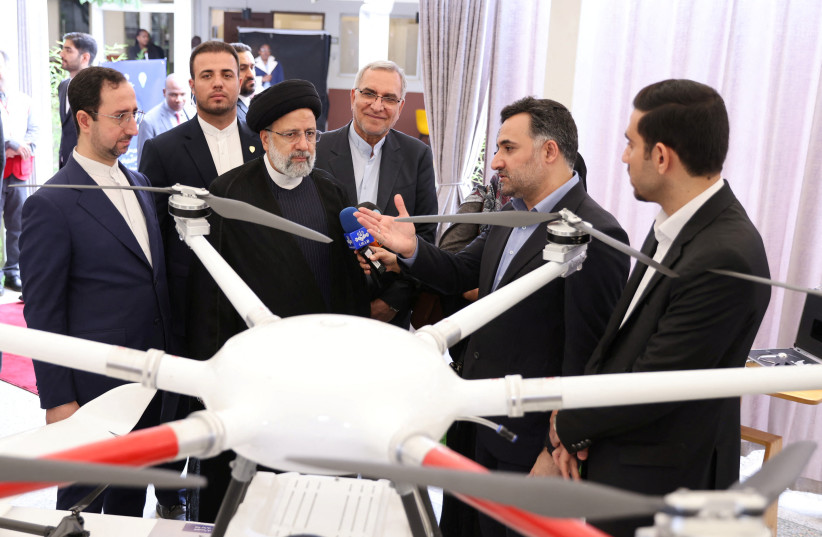In February 2020, before leaving for a one-day trip to Uganda - his fifth trip to Africa in three and a half years, Prime Minister Benjamin Netanyahu said Israel is “making a big return to Africa, and Africa has already returned to Israel.”
Back then, Netanyahu prioritized diplomacy over judicial overhaul and invested significant time, energy, and effort in forging diplomatic inroads into Latin America, Africa, and Asia – regions that Israeli officials had long neglected in favor of the US and Europe.
Prime ministerial trips to Africa generated much hype and momentum and demonstrated Israelis’ genuine interest in Africa and an eagerness to engage with it.
Since 2016, when Netanyahu made the first visit by a sitting prime minister to Africa in nearly 30 years, he visited Uganda twice, Kenya twice, Ethiopia, Rwanda, Liberia, and Chad. During visits to Uganda and Liberia, he met with other African leaders, making these ties with Africa a central pillar of his foreign policy.
That was then. In the nearly three and a half years since, neither Netanyahu nor any other prime minister has returned to sub-Saharan Africa.

In the meantime, the Iranians are actively courting the continent, as Iranian President Ebrahim Raisi visited Kenya, Uganda, and Zimbabwe last week to ease the economic pressure caused by US sanctions. This was the first such visit by an Iranian leader in more than a decade.
Just a week earlier, the Iranian foreign minister met his Sudanese counterpart for the first time since the two countries severed ties seven years ago. Until then, Iran had used Sudan to transfer arms to Hamas in Gaza. Iran already enjoys close ties with Algeria and South Africa, which have hindered Israeli efforts to become actively involved in the African Union as an observer.
“Israel should shore up its presence in African states, especially in countries that have been in Iran’s sights.”
Meir Ben-Shabbat
Meir Ben-Shabbat, Netanyahu’s former national security adviser, wrote in Israel Hayom last week that while the US is not paying sufficient attention to Iranian inroads into Africa, Israel most definitely should.
“Israel should shore up its presence in African states, especially in countries that have been in Iran’s sights,” he said. “It must subscribe to an activist foreign policy under the premise that if Israel doesn’t show up, someone else will.”
Eli Cohen flies to Kenya after Raisi visits Africa
And it seems that someone in Jerusalem was listening; Foreign Minister Eli Cohen flew to Kenya on Sunday for a lightning 10-hour visit during which he met with Kenyan President William Ruto and several African officials, including – according to various reports – the leader of an unnamed African country without diplomatic relations with Israel.
Israel is involved in discreet normalization contacts with some African countries, including Niger, Mali, and Mauritania, but those talks have been ongoing for years without resulting in formal ties.
Cohen made clear that countering Iranian influence on the continent was a key reason for his visit. Kenya is one of Israel’s closest allies in Africa, and its president paid a state visit to Israel in May. Nonetheless, it rolled out the red carpet last week for Raisi.
Had Raisi gone to Zimbabwe, South Africa, and Algeria, African countries where the Islamic Republic is known to have strong ties, that would have been one thing. But going to Kenya and Uganda – countries with good ties to Israel – should signal to Jerusalem that there is a need to step up its involvement again in Africa, recapturing the excitement and movement witnessed when Netanyahu prioritized Africa during his previous tenure.
Cohen said his talks with the Kenyans focused on areas of cooperation. And here, Israel has something to offer the Africans that the Iranians cannot: consistency without contradictions.
While Iran is, on the one hand, trying to cultivate new economic relationships in Africa, on the other hand, it has reportedly attempted to carry out terrorist attacks against American and Israeli targets there. In addition, it has taken steps to destabilize the continent and cultivate proxies in places like Somalia and Nigeria to sow chaos.
Israel does not engage in destabilizing activities while simultaneously offering security, agriculture, and water management assistance.
Another added value that Israel brought to the table during Netanyahu’s Africa push in the latter part of the last decade has, however, lost some of its luster: its relationship with the US.
One of the hopes that some African countries had in forging strong relations with Israel when Netanyahu made his push into Africa seven years ago was that this would open doors for them in Washington. Now, however, they are watching as Netanyahu having trouble even opening a door for himself in Washington, something that only reduces the importance of ties with Israel in their eyes.
